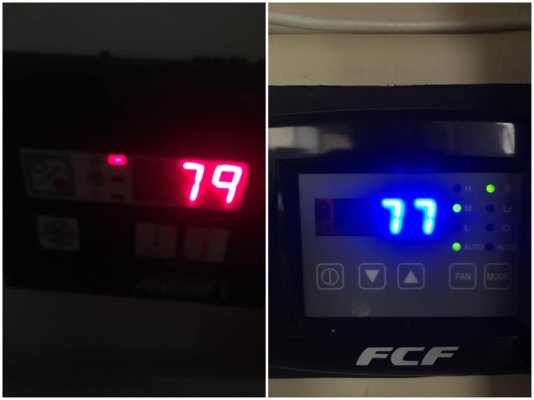To those who say my thinking is not correct, that is a very real possibility and will accept that.
Now my defense is as follows:
I did not say you could make your boat a refrigerator any more that you can turn your house or RV into refrigerator but you can make it daymned uncomfortable.
A house A/C, as someone said, can cause a 20 degree differential from the outside temp.
We cannot expect more from marine reverse cycle plant.
Maybe I was too simple when I said the marine units are basically heat pumps.
While I did not say the home heat pump nor the marine reverse cycle units were efficient, they work.
A lot has to do with insulation. I doubt if a boat nor RV are insulated as well as a house.
Right now, I am just north of Miami, the water temp is 80+F. It got too cold in the saloon so I had to turn the unit off. That is because the sun has gone down and the heating of the outside surfaces has been reduced.
If the RV AC become more efficient with more air passing over the coils, so be the marine units. The more water passing through the marine reverse cycle plants, the more efficient they become.
I used the simple comparison by saying the marine plants are basically heat pumps, giving up heat to the water or taking heat away from the water as necessary instead of home heat pump's interaction with the air.
With the home heat pump, as I recall, becomes inefficient when the air temp approaches 40F. I guess that is why home heat pumps include 'emergency heat strips' and the American Tugs come standard with 2 electric heaters.
All this being said, when the marine plants are in auto, they have the ability change from A/C to heat without intervention and adjust the fan speed too. Whereas home heat pump may be able to adjust the speed of the compressor and maybe the fan speed, it cannot automatically change from heat to A/C.
Again, if I am wrong but my explanation seems to satisfy my feeble mind.

